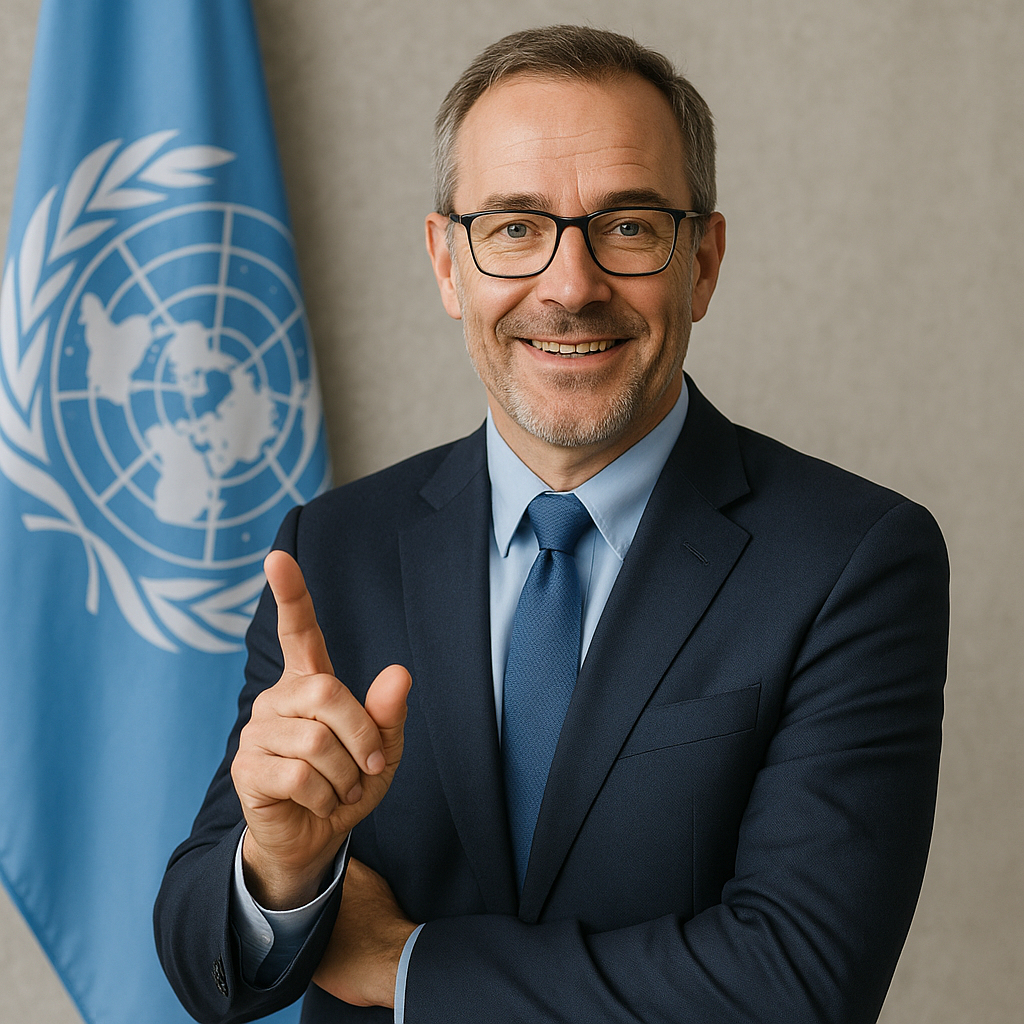U.N. Insider advice: How competitive is it really — and where should you start? Is there an agency that’s easier to break into?
Smiling middle-aged man in navy suit and glasses, standing in front of a UN flag, sharing advice on starting a career at the United Nations, including tips on qualifications and entry points.
As someone who’s worked within the United Nations system for years, I often get asked: How competitive is it to land a job at the UN? And, Is there an agency that’s easier to break into? Let me share some hard truths and practical guidance from the inside.
How competitive is it to get a UN role?
In one word: very. Every position I’ve been involved in—whether at headquarters or in the field—attracts an incredible volume of applications from all over the world. Why? Because the UN’s global mission, prestige, and the promise of contributing to real change are irresistible. But with that comes intense competition.
For nearly every vacancy, we’re looking at candidates who not only have the academic credentials (a master’s degree is often preferred) but also relevant field experience, language skills, and the right competencies. In other words, it’s not just about your degree — it’s about the experiences you’ve had, the skills you bring to the table, and how well you fit into the UN’s complex, multicultural environment.
I can’t emphasize enough how important language skills are, especially English and French. But if you speak Arabic, Chinese, Russian, or Spanish in addition to English or French, that can really set you apart.
Lessons learned: Where’s the easiest entry point?
There’s no “easy” route — every agency has its own challenges and entry hurdles. But from what I’ve seen, there are some pathways that are more accessible, especially if you’re just starting out:
UN Volunteers (UNV): This is one of the most straightforward entry points. It allows professionals to gain field experience while supporting real UN projects. I’ve seen many colleagues start as UN Volunteers and later transition into staff positions.
Internships: Every UN agency offers internships — and although they’re usually unpaid, they’re invaluable for building networks and demonstrating your commitment to the UN’s mission. A lot of my colleagues started as interns at UNDP, UNICEF, or UNHCR, and used that experience to move into consultancy roles or fixed-term contracts.
Junior Professional Officer (JPO) Programs: If your government sponsors JPO positions, that’s a fantastic way to get in. These roles are designed to develop young professionals — I’ve mentored several JPOs who later landed permanent positions.
Specialized Agencies in Humanitarian Operations: Agencies like WFP, UNHCR, and UNICEF often have large field operations, and they need staff with hands-on experience. While the competition is still stiff, the high turnover in some crisis zones means more frequent opportunities.
Consultancies: Short-term consultancies can also be an effective entry point. They might not offer long-term job security, but they allow you to build credibility, gain visibility, and prove your worth.
My advice for aspiring UN professionals
From where I stand, it’s about persistence, adaptability, and continuous learning. Don’t just focus on one agency or one position. Build your expertise, seek field experience, learn new languages, and keep applying — even after setbacks.
Every successful UN staff member I know has faced rejections, delays, and challenges along the way. But their passion for international service — and their resilience — eventually led them to a fulfilling career.
So, keep pushing forward, stay curious, and always remember why you want to be part of the UN: to serve, to learn, and to help build a better world.

